Many of us have been forced to live with cannabis shame for years. Who in your life still doesn’t approve of the herb, and why?
Cannabis conversations are easier than ever to navigate, but in some regions, preparation and tact go a long way – especially where the plant is still facing some form of prohibition.
You might be wondering, is it even worth it to try and change somebody’s mind on a particular issue?
When the “issue” is cannabis, the answer is almost always yes.
Tactfully Blunt: How to Talk to Your Family About Weed
In more places than not, cannabis is still considered taboo. This is especially ironic given the social acceptance of alcohol, a drug that kills three million people across the globe each year, according to the World Health Organization.
Cannabis has its pitfalls, however it is much safer than booze with more benefits and fewer risks. To date, zero people have died from weed, despite nearly a century of disinformation, stigma, and all-out demonization.
Even though reefer madness propaganda persists, things are beginning to change, and in the age of legal cannabis, it’s high time to further destigmatize the plant on a social level, and that means getting braver about having “The Weed Talk.”
Whether you think your loved one might benefit from cannabis use or you just want them to understand why it’s an important part of your life, having that initial conversation is crucial for opening communication.
Unsure how to start? The Bluntness has broken down a few of the most helpful tips and nuances when talking to loved ones about cannabis for an approach that effectively chips away at the tangled roots of cannabis fear and misconception.
Before You Do Anything, Listen
The biggest mistake people make when trying to drive a point across to someone who opposes it? Steamrolling right over their concerns with an assault of recycled discourse or half-baked talking points.
We know it can be difficult, especially if you’ve been dealing with anti-cannabis vibes for years, but the only way you’re going to get anywhere with the conversation is by taking the time to listen, first.
What are your loved ones’ main concerns, and where did their ideas about cannabis originate? Have they had a negative experience with cannabis in the past? What are some of the influences that have shaped their mindset?
Keep in mind that anyone who is against legal cannabis today is likely to come at you with preconceived biases they may not even be consciously aware of, and you coming back at them with aggression or impatience will only validate their perspective.
Try to keep an open mind and listen to their concerns with genuine interest and curiosity.
Answer Their Questions as Thoroughly and Honestly as You Can
Once you’ve allowed your loved ones to air out their grievances, it’s time to come back with a response.
Take this opportunity to answer any questions they may have asked, address any misinformation they may be holding onto, or simply respond with your take on their perceptions.
Again, patience is key throughout the interaction, or else anything you have to say will likely fall on deaf ears.
Maybe ask a few questions of your own to better understand where they’re coming from, and how you might be able to help them view things from a new perspective.
Questions you might ask could include:
- Where do you think your information about cannabis came from?
- Is it possible that your information could be outdated?
- Would you be willing to consider new information about cannabis?
It’s also important to come at this segment of the conversation with transparency. Cannabis isn’t 100 percent bad, but it also isn’t 100 percent good. Yes, it’s a versatile medicine and wellness product; no, it’s not a panacea or silver bullet.
In other words, make sure you’re not blindly defending every aspect of the plant – it’s just as essential to acknowledge the risks that come along with cannabis so people can make the best decision for themselves.
Also, be sure to come to the conversation prepared. Know the basic science of the plant and how it works with our bodies, a little history, and anything else you think they might be interested in learning.
Do your homework ahead of time, anticipate the arguments or misconceptions they might bring up.
Argument #1: Isn’t cannabis addictive?
Rebuttal: There is a lot of conflicting information about this. It can be habit forming; people can become dependent on cannabis; people can abuse it – just like anything else. And yet, the side effects of caffeine withdrawal, for instance, are much more pronounced than cutting weed, which usually amounts to irritability, loss of appetite, difficulty sleeping, and a potential return of any medical issues, which the cannabis was helping.
Argument #2: Yeah, but what about cannabis being a gateway drug?
Rebuttal: It’s another myth. In fact, in 1999 The Institute of Medicine of the National Academy of Sciences reported, “There is no conclusive evidence that the drug effects of cannabis are causally linked to the subsequent abuse of other illicit drugs.”
Argument #3: Doesn’t cannabis cause psychosis?
Rebuttal: If someone already has issues with psychosis, it can be a concern. At the same time, this study found that cannabis is associated with lower rates of domestic violence among married couples.
As you navigate the convo, come prepared with credible info, and don’t be afraid to admit if you don’t know the answer to something. You can always look it up and get back to them later.
Share the History of Cannabis Prohibition With Them
While most people who are anti-cannabis have likely felt that way for a long time, they are also probably unaware of why cannabis was outlawed and stigmatized in the first place.
While prohibition has been around for almost a century, humankind has been utilizing this plant since at least 6,000 BCE.
As consciousness researcher Sebastian Marincolo puts it, “The legalization of marijuana is not a dangerous experiment – the prohibition is the experiment, and it has failed dramatically, with millions of victims all around the world.”
Essentially, cannabis went from being considered a sacrament and medicine, as well as a staple crop for fiber and food, to a menacing “gateway drug.” It will take society more than one generation to recover from this harmful stigma and misinformation.
If your loved ones don’t know anything about cannabis prohibition’s racist origins, or how Nixon buried 4,000 pages of cannabis research to keep the herb as a schedule I controlled substance, sharing this history with them might help shift their perspective.
Open Up About Your Experiences With Cannabis
Now that you’ve listened to their concerns, answered some questions, and shared a bit about cannabis’s history, it’s time to open up about what really matters: your cannabis story.
Sharing your own cannabis story is one of the most powerful ways to change hearts and minds on this issue.
It can be hard to come up with this on the spot, so if it helps, write down a list of all of the ways cannabis benefits you beforehand so you have it handy.
Whether you use the plant for chronic pain, anxiety, depression, insomnia, creativity, relaxation, sex, or anything else, there are plenty of ways to make cannabis work for your lifestyle, and it’s important for your loved ones to realize the plant’s potential as a wellness product.
A word of caution when sharing your cannabis story – be sure to practice proper judgment with who you’re talking to before opening up too much.
Let Them Know How Cannabis Might Work For Them
If you’ve come to this point in the conversation and your friend or family member is keeping things refreshingly open-minded, it might be time to recommend the plant to them.
There are so many different forms of cannabis, and so many different ways to consume and experience it. While your loved one might not be keen on the idea of ripping a bong of high-THC flower, some CBD tea, or a CBN tincture with very low psychoactive effects might be just what they’re looking for.
And if you are going to guide them on their first cannabis experience, make sure to be careful of dosage. The other person will most likely have a very low tolerance, and too much could lead to a negative experience.
All in all, stay respectful and as informative as possible, don't pressure anyone to try cannabis, and remember that this is a dialogue that might stretch out over time.
While you may not feel directly responsible for changing your aunt’s mind about weed, it’s these little conversations being had at person-to-person level that will affect the most powerful change on society’s perception of the plant.
We have to keep working together to build a better future – and more people mindfully consuming cannabis is a good thing.
Need a little more Bluntness in your life? Sign Up for our newsletter to stay in the loop.
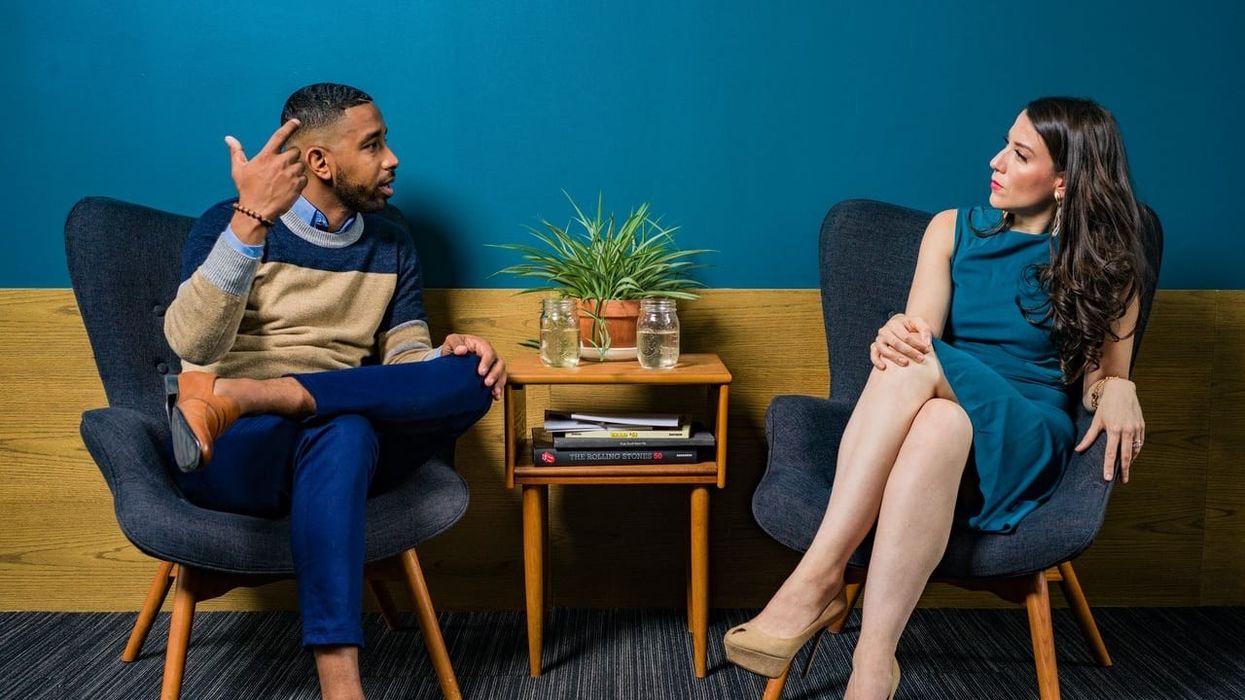






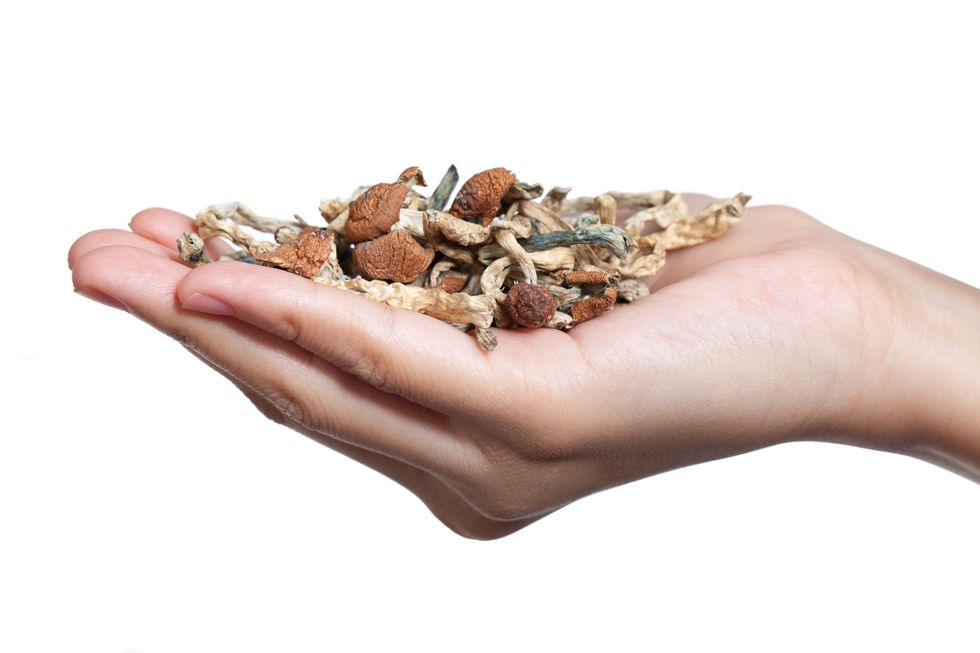 How to Make Mushroom Tea - The Bluntness
null
How to Make Mushroom Tea - The Bluntness
null
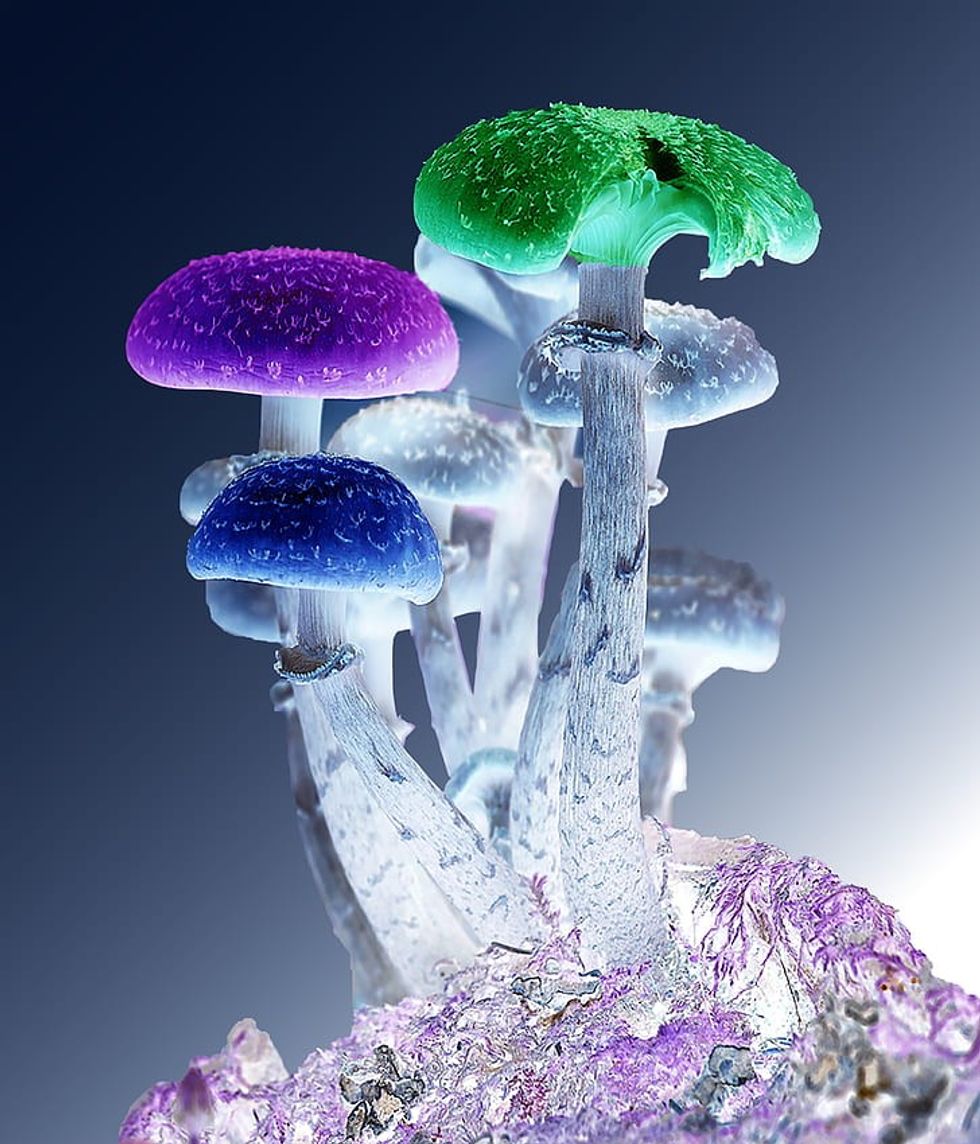 How to Make Mushroom Tea - The Bluntness
www.pickpik.com
How to Make Mushroom Tea - The Bluntness
www.pickpik.com








 Cannabis and Sleep: Finding Rest with Herbal Remedies - The Bluntness
Photo by
Cannabis and Sleep: Finding Rest with Herbal Remedies - The Bluntness
Photo by 
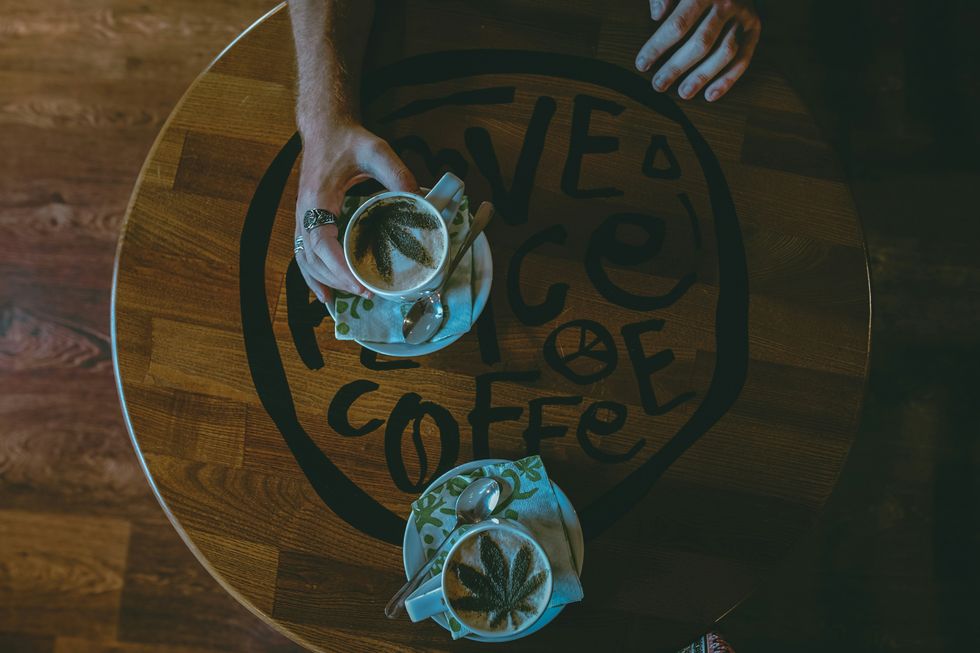 Coffee & Weed: A Modern Spin on the Hippie Speedball - The Bluntness
Photo by
Coffee & Weed: A Modern Spin on the Hippie Speedball - The Bluntness
Photo by 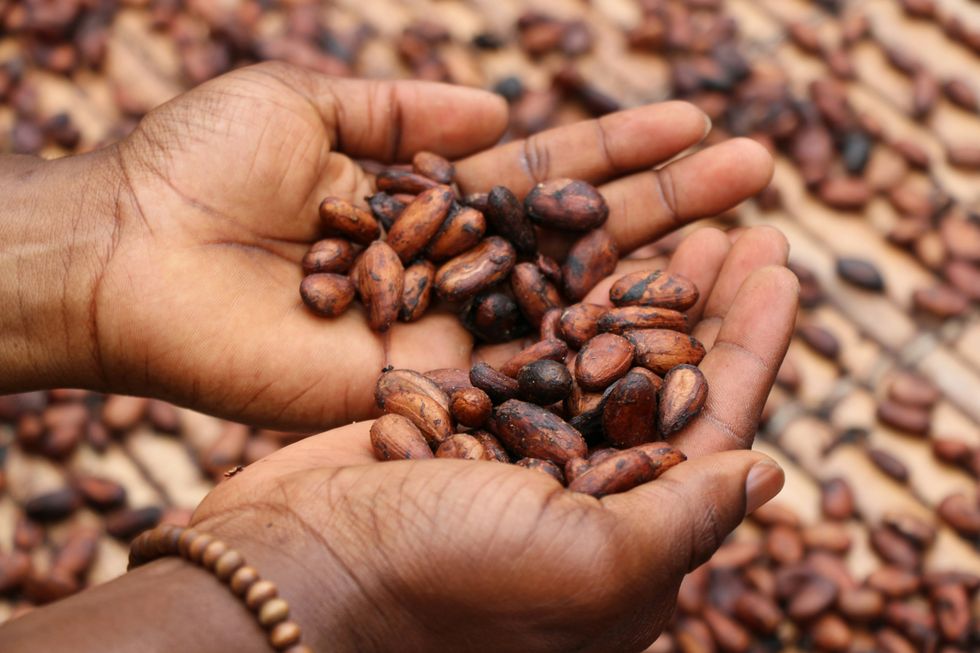 Coffee & Weed: A Modern Spin on the Hippie Speedball - The Bluntness
Photo by
Coffee & Weed: A Modern Spin on the Hippie Speedball - The Bluntness
Photo by 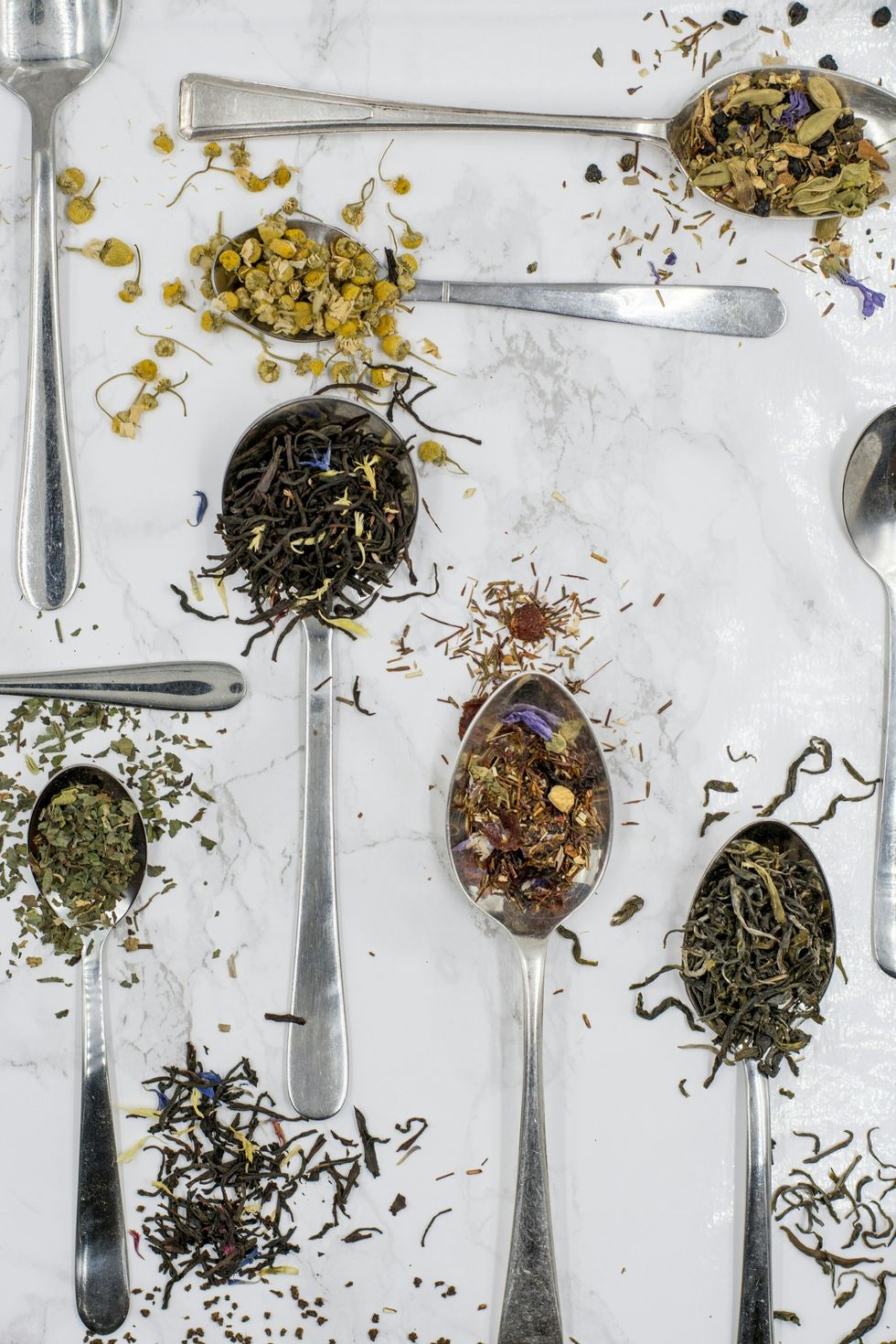 Coffee & Weed: A Modern Spin on the Hippie Speedball - The Bluntness
Photo by
Coffee & Weed: A Modern Spin on the Hippie Speedball - The Bluntness
Photo by 
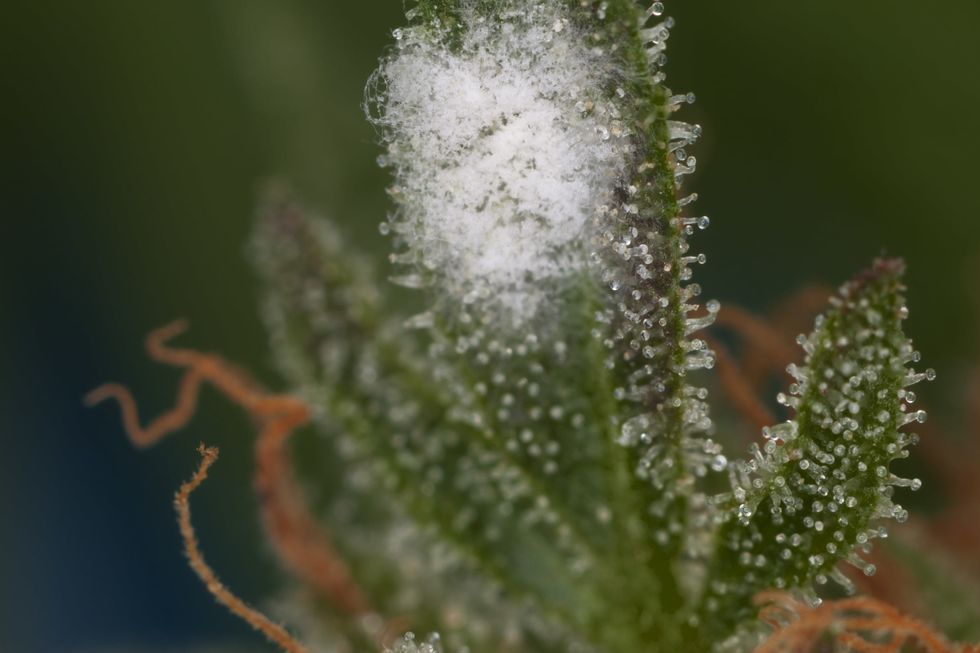 A good picture showing white mold next to cannabis trichomes.
A good picture showing white mold next to cannabis trichomes.